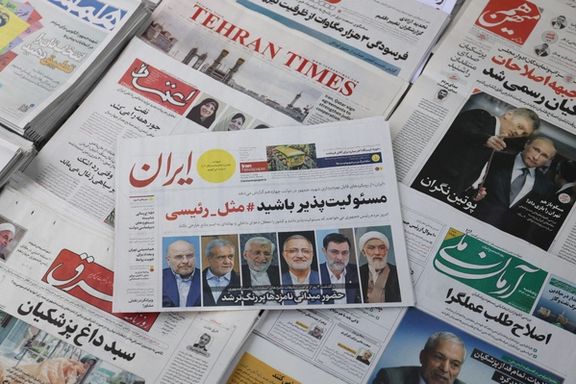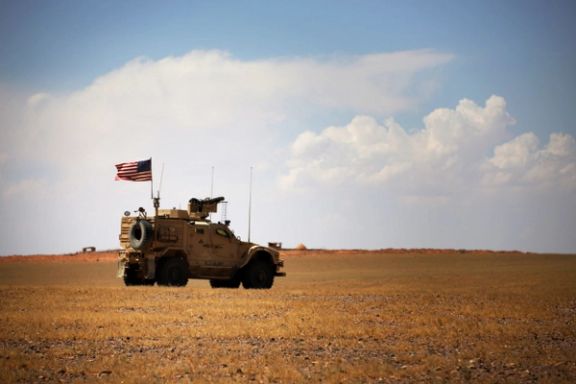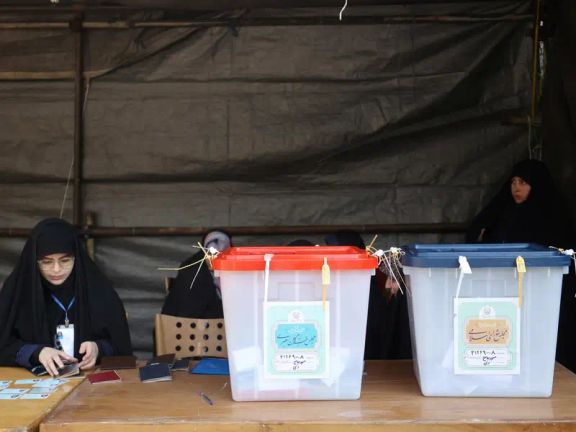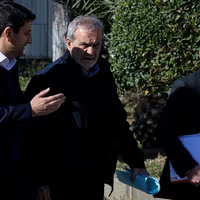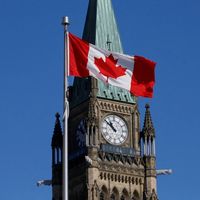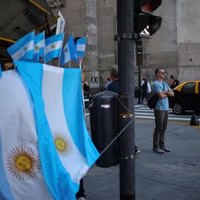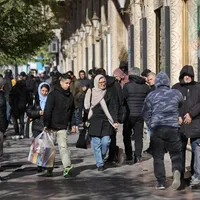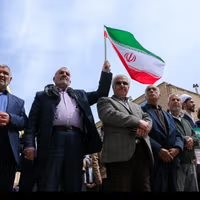In the statement the signatories asserted: "Participation in the elections, even under the assumption of a victory by a reformist candidate, is futile, offering no resolution to ongoing issues. Moreover, it risks bolstering [government's] legitimacy and intensifying suppression of dissent and protest. Therefore, we declare our refusal to partake in the presidential elections."
Six hand-picked insider politicians have been allowed to compete in the presidential vote. The president does not full power over many institutions and in key decisions, which are shaped by Supreme Leader Ali Khamenei.
The growing chorus of voices condemning the upcoming June 28 snap presidential election in Iran includes high-profile figures. Iranian Nobel Peace Prize laureate Narges Mohammadi has labeled it as a facade orchestrated by an oppressive regime.
From Evin Prison in Tehran, Mohammadi declared on Saturday, “I will not participate in the illegal elections of the oppressive and illegitimate government.”
Iranian female Islamic scholar Sedigheh Vasmaghi has separately announced that participating in the upcoming snap presidential elections would bolster the Islamic Republic's legitimacy.
In a statement on her Instagram account on Friday, Vasmaghi asserted, “When voter turnout is low, the ruling factions lose confidence, but high turnout empowers and validates them.”
“I consider the people's vote to be a valuable social and national asset that should not be squandered or used to benefit those responsible for current issues,” she added.
Other political activists and former prisoners, including Hossein Razzagh and Mehdi Mahmoudian, have also declared their intention to abstain from participating in the elections.
Mahmoudian argued that "the possibility of change through the ballot boxes has been stripped from the people."
Political analysts within Iran suggest a potential low voter turnout. Iranian journalist and political activist Abbas Abdi observed that many Iranians are disenchanted with the political system and are unlikely to participate in the snap presidential elections.
In an op-ed in Etemad newspaper, Abdi remarked, "The atmosphere of boycotting the elections has not yet begun to thaw."
Meanwhile, the televised presidential debates, once regarded as the "government's propaganda machine that effectively energized the election," as described by analysts, have shown little to no impact this time.
Recent surveys indicate a notable lack of voter engagement leading up to Iran's June 28 snap presidential election, contrasting sharply with the 2009 elections, in which 85% of eligible voters participated.
Some survey results indicate that a majority of eligible voters most likely will stay away from polling stations.
According to a survey conducted by the Iranian Students Polling Agency (ISPA), 73% of respondents reported not watching the first presidential debate on June 17.
This can be attributed partly to the constraints placed on TV hosts and candidates, preventing substantive challenges that could expose corruption within the clerical establishment.
In a Saturday meeting with the judicial branch officials, Supreme Leader Ali Khamenei reiterated that "The debates of the election candidates should not be a platform for a candidate to gain an advantage over others by uttering statements that please our enemies." He further emphasized, "It is unacceptable to speak in ways that favor the enemy." In Khamenei's political jargon, enemies are the United States, Israel and their allies.
Furthermore, Iran's Minister of Intelligence had stated that his agency was rigorously monitoring the conduct of presidential candidates and their supporters, cautioning that individuals promoting "subversive" narratives will face legal consequences.
Additionally, the state-run Islamic Republic of Iran Broadcasting (IRIB) had warned presidential candidates, admonishing them against portraying Iran unfavorably in their campaign broadcasts and threatening to prevent such broadcasts from airing.
